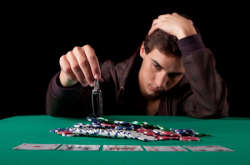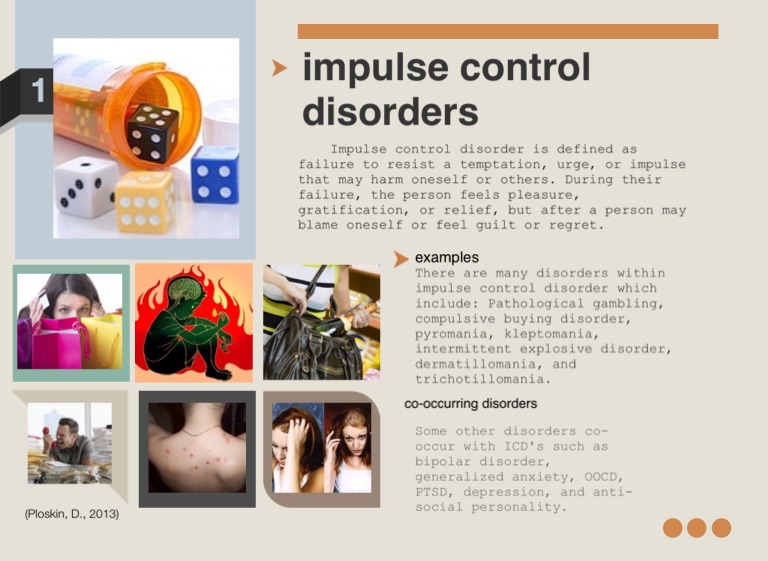Gambling can be defined as any activity (e.g. a game of chance or skill) where an item of value is placed at risk in an attempt to gain something of greater value.
Anyone involved in gambling activities has the potential to develop an addiction, however some individuals and groups are more at-risk. Gambling behavior can be classified into four categories:

- non-problem
- low-risk
- moderate-risk
- problem gamblers
Adolescents, veterans, aging adults, and Latino and Asian communities are just a few of the major groups termed “special populations” and considered at higher risk than the general population for developing a gambling addiction.
Disordered gambling, also variously referred to as gambling addiction, problem gambling, compulsive gambling, and pathological gambling, is defined by the Diagnostic and Statistical Manual of Mental Disorders, 5th Edition (DSM-5) as. Pathological gambling (PG) is a relatively common disorder associated with significant personal, familial, and social costs. The condition is currently classified as an impulse control disorder, although similarities exist with other disorders, particularly substance addictions.
- Gambling disorder involves repeated problematic gambling behavior that causes significant problems or distress. It is also called gambling addiction or compulsive gambling. For some people gambling becomes an addiction — the effects they get from gambling are similar to effects someone with alcoholism gets from alcohol.
- Pathological gambling is a common disorder that is associated with both social and family costs. The DSM-5 has re-classified the condition as an addictive disorder, with sufferers exhibiting many similarities to those who have substance addictions. The term gambling addiction has long been used in.
The Definition of Gambling Addiction
Over the past few decades, health professionals have discussed and debated the definition of various terms associated with problem gambling. Diagnostic phrases have varied from “pathological gambling” and “compulsive gambling” to “gambling addiction” and the latest diagnosis, “disordered gambling,” and the criteria for being diagnosed as having an addiction or being at-risk have changed along the way, as well.

Gambling Disorder in the DSM-5

The condition previously named pathological gambling was renamed gambling disorder and classified in the category “Substance-Related and Addictive Disorders” in the DSM-5. The criteria for diagnosis is as follows:
Pathological Disorder Definition
Persistent and recurrent problematic gambling behavior leading to clinically significant impairment or distress, as indicated by the individual exhibiting four (or more) of the following in a 12-month period:
- Needs to gamble with increasing amounts of money in order to achieve the desired excitement.
- Is restless or irritable when attempting to cut down or stop gambling.
- Has made repeated unsuccessful efforts to control, cut back, or stop gambling.
- Is often preoccupied with gambling (e.g., having persistent thoughts of reliving past gambling experiences, handicapping or planning the next venture, thinking of ways to get money with which to gamble).
- Often gambles when feeling distressed (e.g., helpless, guilty, anxious, depressed).
- After losing money gambling, often returns another day to get even (“chasing” one’s losses).
- Lies to conceal the extent of involvement with gambling.
- Has jeopardized or lost a significant relationship, job, or educational or career opportunity because of gambling.
- Relies on others to provide money to relieve desperate financial situations caused by gambling.
NYCPG most often refers to Disordered Gambling by using the more general term “problem gambling.” The term problem gambling has been used in different ways by the research community, ranging from individuals who fall short of the diagnostic criteria for pathological gambling to persons whose gambling behavior compromises, disrupts or damages personal, family or vocational pursuits. According to the National Council on Problem Gambling, this term is also used as a more inclusive category that encompasses a continuum of gambling difficulties, with pathological gambling at one end of the spectrum. A problem gambler dedicates more time, thought and money towards gambling.
How can you tell when gambling is becoming a problem for you or a loved one? After all, when done in the spirit in which it’s intended – as a fun thing to do every now and then for the happy few times one beats the house and wins a few dollars – gambling can be an enjoyable pastime during a vacation or long weekend away from the everyday. But it can be difficult to tell when it’s become something more insidious and dangerous. Problem gambling is often referred to as the “hidden addiction” because, unlike alcohol or drug abuse, there are rarely outward signs or physical symptoms. Read below for some of the signs when gambling has become – or is starting to become – more than an occasional amusement and turning into an addiction.
Pathological Gambling Disorder Definition Dictionary
- Are you or a loved one haunted by bill collectors?
- Do you or a loved one gamble to escape worry, boredom or trouble?
- Do thoughts of gambling disrupt your sleep?
- Do you or a loved one ever gamble longer than originally planned?
- Do arguments, disappointments or frustrations cause you or a loved one to gamble?
- Do you or a loved one celebrate good times with gambling?
- Have you ever had self-destructive thoughts because of problems resulting from gambling?
- Have you or a loved one lost time from work or school due to gambling?
- Do you hide the rent/mortgage or food money because your spouse, partner or other family member gambles it away?
- Do you or a loved one borrow money to finance gambling or to pay back gambling debts?
- Does your spouse, partner or other loved one promise faithfully that she or he will stop gambling, yet continues to gamble?
- Have you noticed a personality change in a loved one as his or her gambling has progressed?
- Is your spouse, partner or other loved one away from home or unavailable to the family of long periods of time due to gambling?
What Is Pathological Behavior
Adolescent warning signs may be different than those experienced by adults. Is your child exhibiting any of the following?
- Unexplained absences from school or classes
- Sudden drop in grades or failure to complete assignments on time
- Change of personality or behavior
- Exaggerated display of money or other material possessions
- Daily or weekly card game
- Bragging about winning at gambling
- Intense interest in gambling conversations
- Unusual interest in newspapers/magazines/periodicals/sports scores
- Unaccountable explanation for new items of value in possession
- Borrowing or stealing money
- Withdrawing from family and friends
- Uncharacteristically forgetting appointments or dates
- Exaggerated use of word “bet” in vocabulary and/or use of gambling language in conversations (e.g. bookie, point spread, underdog, favorite)
Gambling problems can impact the workplace causing distress for the individual employee as well as peers. If you are concerned about one of your employees or colleagues, ask yourself the following:

- Does the employee spend excessive time away from the job? (NOTE: Excessive time away from the job may include extended use of telephone to place bets or check results; reviewing form sheets, racing, sports or the stock pages in the newspaper, when pretending to work; participating in cards, lottery and/or office pools often, etc.)
- Does the employee take unusual amounts of sick time, especially half-days? (NOTE: The compulsive gambler frequently takes excessive time. S/he often suffers from depression, hypertension, ulcers and other health problems. S/he also uses sick time to gamble.)
- Does the employee routinely arrive late, leave early, take long lunches or experience difficulties reporting and/or remaining in scheduled work location(s)?
- Does the employee talk or worry about money problems, or experience money difficulties, resulting in requests for cash advances or loans (i.e. borrowing) from fellow employees and/or employer?
- Does the employee always seem to be the person who starts and/or runs the office pools (e.g. sports, lottery, birth)?
- Does the employee encourage coworkers to bet in office pools and/or bet more money?
- Does the employee try to organize an office excursion to a casino or racetrack?
- Does the employee have a history of writing bad checks?
- Does the employee have more than one mailing address?
- Does the employee’s use of company money seem suspicious or inappropriate?
If you’re concerned that problem gambling may be affecting you or someone you know, FIND HELP.